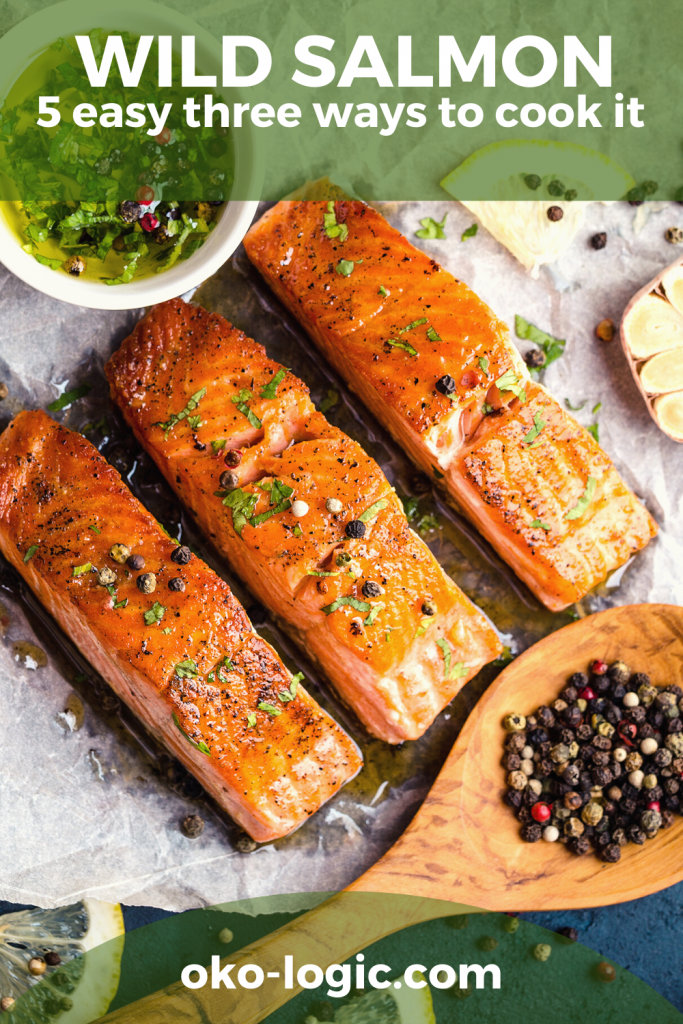It is my pleasure to introduce the author of this article, Daniela Turley, BSc. (Hons.) MCPP, AHG of Urban Healing. Daniela has been treating patients using Herbal Medicine for over twenty years with clinics in both London and New York. She takes time to understand you and your healthcare needs, knowing we are all different and we all have individual requirements and concerns.
Read more about Daniela and set up an in-person or virtual consultation with her.

- 1. Anti-Cancer Diet Plan
- Key Principles of Anti-Cancer Nutrition
- Related Post: My Search for Best Anti Colon Cancer Diet
- Foods to Avoid on an Anti-Cancer Diet Plan
- Obesity and Cancer
- EFA (Essential Fatty Acid) Therapy in Anti-Cancer Diet Plan
- Calcium-Rich Foods as Part of the Anti-Cancer Diet
- Vitamin D
- Microbiome Support
- Related Post: How Much Kefir Should You Drink?
- 2. Boost Endogenous Defenses
- 3. General Herbal Support
- 4. Specifically Anti-Cancer Herbs
- Related Post: Medicinal Mushrooms
- 5. General Lifestyle Changes
Cancer is an illness that is increasing in prevalence, the reason for this is unknown with many theories being put forward. These range from the increasing age of the population and associated inflammation and immune dysfunction (1) to increased exposure to environmental triggers like chemicals and cigarette smoking (2, 3). Also increased levels of obesity and lack of exercise have also been put forward as a risk factor which is increasing(4).
Whatever an individual’s cancer cause the fact is that cancer will touch more of our lives than even a generation ago. The conventional treatment of cancer is always recommended and due to legal constraints it is illegal to treat cancer naturally.
However, a holistic approach to cancer with anti-cancer herbs, nutrition, anti-cancer diet plan and holistic support is becoming increasingly popular and is allowed by law but the therapist must liaise with the Doctor in charge of the case.
The following is intended to be a guide to some of the holistic support available. It is strongly advised to undergo any complementary treatment with a qualified therapist who should liaise with the conventional doctor with regard to the treatment.
1. Anti-Cancer Diet Plan
Key Principles of Anti-Cancer Nutrition
The American national cancer institute (AICR) has identified a range of foods with cancer-preventing potential in three categories which can be included in an anti-cancer diet plan:
a) Highest anti-cancer activity is found in garlic, soya beans, and the umbelliferous vegetables (e.g. carrots, celery, parsley and parsnips) also in this category are anti-cancer herbs ginger and licorice.
b) Moderate anti-cancer activity is found in onions, linseed, citrus, cruciferous vegetables (e.g. broccoli, Brussel sprouts, cabbage and cauliflower), solanaceous vegetables (e.g. tomatoes and peppers), grapes, brown rice and whole wheat. This group also includes the anti-cancer herb turmeric.
c) Modest anti-cancer activity has been demonstrated by oats, barley, cucumber and includes easy to get anti-cancer herbs such as mints, rosemary, thyme, oregano, sage and basil.

AICR’s New American plate diet plan recommends foods that can reduce your risk for cancer and other chronic diseases. It recommends an anti-cancer diet plan which is based on a simple plate division system where
- two-thirds (2/3) of your plate is made up of plant foods such as whole grains, vegetables, fruit and beans.
- The remaining third (1/3) of your plate may be filled with animal-based protein-rich foods such as seafood, poultry and dairy foods and occasionally with lean red meat. (5)
- Please note preserved meats like bacon, sausage and luncheon meat have been associated with increased cancer risk and should be avoided entirely.
Eating this kind of diet will provide the body with adequate fiber, and because there is a clear link between fiber intake and many cancers including eosophagal, colorectal, endometrial and ovarian it is wise to keep fiber levels high (6,7,8).
30 grams a day is recommended, if in doubt it is suggested to use an online calculator to estimate your daily intake and change diet accordingly.
Many practitioners also recommend a diet that is low in acidity purporting that cancer cells are unable to thrive in such an environment, there is little other than anecdotal evidence to support this but it is still a widely used adjunct to conventional treatment.
Because an alkaline diet is high in fruits and vegetables and low in processed foods and meats it is likely to be helpful due to this diet being high in plant chemicals that have anti-cancer effects. An alkaline diet also tends to be high in fiber which can significantly reduce the risk of certain cancers and as stated above should be included in an anti-cancer diet plan.
Related Post: My Search for Best Anti Colon Cancer Diet
Foods to Avoid on an Anti-Cancer Diet Plan
Certain foods have been associated with increased cancer risk. As a practitioner, I suggest avoiding these foods entirely if you fall into a high-risk category. They include:
- red meat
- preserved meat like bacon, sausages and luncheon meat
- preserved and salted fish
- burnt or charred foods
- alcohol
- processed carbohydrates like sodas. (9,10,11,12).
A diet high in saturated fat, though recommended by some in the form of a keto diet, has been associated with an increased risk of breast, lung, prostate, and colorectal cancer risk (13,14,15,16).

Obesity and Cancer
There is a clear link between obesity and cancer risk so it is always recommended to lose weight if obese and maintain a healthy BMI to reduce cancer risk as part of a holistic approach to cancer (17,18)
This should be done safely and under supervision to prevent nutritional deficiencies that may negatively affect the body.
EFA (Essential Fatty Acid) Therapy in Anti-Cancer Diet Plan
EFAs have a role in reducing inflammation. Inflammation is being more clearly linked to cancer development (17,19,20) and as EFA balance is likely to be part of the mechanisms involved in reducing inflammation, having a diet high in certain EFAs.
In a holistic approach to cancer focusing on increasing especially omega 3 oils which are found in fish and GLA that is found in small amounts in nuts and seeds and greens. A relatively short time period of three months is needed to change the fatty acid balance in the body and has been suggested this fatty acid change may reduce cancer-related complications. (21,22)
Please note, omega 6 oils found in sunflower seed oil, canola oil, soybean oil etc. are best avoided as this is pro-inflammatory.
Calcium-Rich Foods as Part of the Anti-Cancer Diet
There exists a strong link between low intake of dietary calcium in the form of dairy products and increased risk of colorectal cancer with the opposite seen in prostate cancer with high calcium increasing the risk of prostate cancer. For other cancers, the risk/benefit is still inconclusive though still being studied. (23)
Vitamin D
Adequate vitamin D is hard to achieve in the winter months or for those living in high latitudes. Clear links between vitamin D status and certain cancers have been made, these include colorectal cancer and breast cancer (24,25).
However, in other cancers, the benefits are less clear. As part of a holistic approach to cancer, vitamin D supplementation is recommended in the winter months and this may continue in the summer months depending on skin color and exposure to the sun.
RELATED POST: Direct Sunlight and Our Bodies
Microbiome Support
The research into the links between the microbiome and health expands each year. There is a growing body of evidence that the microbiome may possibly play a role in cancer through its positive or negative effect on inflammation. (25,26, 27)
As the microbiome is greatly improved by a plant-based diet a diet that contains a large and varied amount of plant matter as suggested above will support a healthy and diverse microbiome and should be the basis of any anti-cancer diet. Also, certain bacteria that thrive on a diet high in red meat and fat are associated with increased inflammation.
Related Post: How Much Kefir Should You Drink?
To sum up, in a holistic approach to cancer, a diet that is low in red meat, low preserved meat, low saturated fat diet, and high in plant fiber will help maintain an anti-inflammatory microbiome that is protective against cancer.
Along with the diet changes the use of targeted probiotics can also play a role in helping to shift the microbiome to a more anti-inflammatory one.
2. Boost Endogenous Defenses
This section is best supervised by a complementary therapist either by an herbalist, naturopath or nutritionist.
Correct any Intestinal Dysbiosis
This in layman’s terms means getting rid of any bad bacteria or fungi in the intestine that is normally done by anti-microbial herbs. Alongside this, a good probiotic and prebiotic like slippery elm will finish off the job.
More serious gastric problems should be professionally dealt with. As mentioned above a healthy microbiome should always be maintained via diet so once the gut is “reset” a diet high in plant matter with a wide variety is the best way to maintain a healthy diversity as part of a holistic approach to cancer.
Related Post: Healthy Colon
Eliminate any Food Intolerances
As anybody who has tried this before by themselves it is more difficult than it seems. There are several tests available including blood tests. A good old-fashioned food elimination diet is effective though laborious.
The reason food intolerances are best avoided is to reduce total inflammation in the body as part of a holistic approach to cancer.
Reduce Toxic Load
Avoid chemicals where possible. There have been links with many chemicals and cancers including certain dyes, tar, polycyclic hydrocarbons found in smoke to name a few.
Check ingredients in food, and avoid exposure to chemicals from cleaning products, nail varnish remover, hair dye, etc.
In breast cancer, it is especially important to avoid plastics. The organization Environmental Working Group can be helpful as a guide and resource for reducing exposure to cancer-causing chemicals.

Eliminate any Recurrent Infection
Whether it be viral (e.g. Epstein Barr), fungal (e.g. candida), or bacterial (e.g. chronic sinusitis), the chronic infection should be aimed to be resolved as part of a holistic approach to cancer.
This removes any source of fulminating inflammation. This can be targeted by the health care therapist through nutrition and herbs.
3. General Herbal Support
DISCLAIMER: An herbalist or naturopath should advise on this as some of the herbs may interact with medication or may not be suitable for the individual case.

Tonic adaptogenic herbs can help to reduce stress
Siberian ginseng, astragalus, Withania. These are also anti-cancer herbs.
Immune enhancing herbs
Echinacea purpurea, Astragalus, medicinal mushrooms, e.g. Shiitake, turkey tail and maitake. Again these herbs are also cited as anti-cancer herbs.
Herbs that improve circulation
Ginger, Zanthoxylum, Gingko. Ginger and ginkgo have also been labeled as anti-cancer herbs.
Herbs that help reorder sleep pattern
e.g. Valerian, passion flower, zizyphus seed, melatonin, magnesium.
Herbs that help reduce and resolve any underlying inflammation
e.g. Berberine containing herbs like berberis vulgaris, turmeric, feverfew, Dan shen etc. These herbs have also all been shown as having potential as anti-cancer herbs.
After the immune system and general health of the body has been boosted, then a cleansing diet can be embarked upon.
For example, a diet consisting of raw fruit and vegetables and sprouted grains and seeds. This can be done for one week up to a month maximum. After this go back to the 2/3 plant-based anti-cancer diet.
Again, this is best done under supervision to make sure the diet is balanced and contains all nutrients needed.
Juicing can be a good way to add extra plant nutrients but remember how there is a clear correlation between fiber and certain cancers? As juices are devoid of fiber my recommendation for a holistic approach to cancer is to add juices on top of your plant-based diet rather than instead of meals.
4. Specifically Anti-Cancer Herbs
Certain herbs have been shown to have anti-cancer or immune-enhancing properties against cancer cells. These should be taken with proper supervision from a medical herbalist or naturopath.
Please let your Medical Doctor know of any of the anti-cancer herbs you are planning to take. Please note these herbs are not being suggested as an alternative for conventional cancer therapy. This list is not exhaustive there are many more herbs that can be classified as cancer-fighting.
- Astragalus
- Chamomile
- Korean and Siberian ginseng
- Melilot
- Dandelion
- Rehmania
- Greater celandine
- Ginger
- Pau d’arco
- Licorice
- Red clover
- Marigold
- Holy Basil
- Milk thistle
- Sweet violet
- St John’s wort
- Thuja
- Turmeric
- Withania
- Shitake
- Maitake
- Turkey tail
- Mistletoe
- Cordyceps
- Dan shen
- CBD
Related Post: Medicinal Mushrooms

5. General Lifestyle Changes
We have focused here mainly on diet and naturopathic medicine approaches but it must be mentioned that exercise is one of the most important interventions to reduce cancer risk.
There has been a clear link shown between exercise and cancer prevalence.(28) It is therefore recommended that regular aerobic exercise is included in any holistic approach to cancer.
Reducing stress also has a huge impact on the immune system and therefore in theory cancer risk. Mediation is great for boosting the immune system but equally laughing with friends has a strong effect on blood cortisol levels. Don’t forget to have fun!
By Daniela Turley, BSc. (Hons.) MCPP, AHG of Urban Healing.
Trying to get healthier and not sure where to start? Check out my E-Book with easy and powerful swaps to help you improve your nutrition and detoxify your beauty regimen and household environment.
REFERENCES:
1: Bottazzi B, Riboli E, Mantovani A. Aging, inflammation and cancer. Semin Immunol. 2018 Dec;40:74-82. doi: 10.1016/j.smim.2018.10.011. Epub 2018 Nov 6. PMID: 30409538.
2: Rodgers KM, Udesky JO, Rudel RA, Brody JG. Environmental chemicals and breast cancer: An updated review of epidemiological literature informed by biological mechanisms. Environ Res. 2018 Jan;160:152-182. doi: 10.1016/j.envres.2017.08.045. Epub 2017 Oct 6. PMID: 28987728.4
3: Poirier MC. Chemical-induced DNA damage and human cancer risk. Discov Med. 2012 Oct;14(77):283-8. PMID: 23114584; PMCID: PMC7493822.
4: Hopkins BD, Goncalves MD, Cantley LC. Obesity and Cancer Mechanisms: Cancer Metabolism. J Clin Oncol. 2016 Dec 10;34(35):4277-4283. doi: 10.1200/JCO.2016.67.9712. Epub 2016 Nov 7. PMID: 27903152; PMCID: PMC5562429.
6: Dreher ML. Whole Fruits and Fruit Fiber Emerging Health Effects. Nutrients. 2018 Nov 28;10(12):1833. doi: 10.3390/nu10121833. PMID: 30487459; PMCID: PMC6315720.
7: Chen K, Zhao Q, Li X, Zhao J, Li P, Lin S, Wang H, Zang J, Xiao Y, Xu W, Chen F, Gao Y. Dietary Fiber Intake and Endometrial Cancer Risk: A Systematic Review and Meta-Analysis. Nutrients. 2018 Jul 22;10(7):945. doi: 10.3390/nu10070945. PMID: 30037138; PMCID: PMC6073518.
8: Zheng B, Shen H, Han H, Han T, Qin Y. Dietary fiber intake and reduced risk of ovarian cancer: a meta-analysis. Nutr J. 2018 Oct 30;17(1):99. doi: 10.1186/s12937-018-0407-1. PMID: 30376840; PMCID: PMC6208085.
9:IARC Working Group on the Evaluation of Carcinogenic Risks to Humans. Red Meat and Processed Meat. Lyon (FR): International Agency for Research on Cancer; 2018. PMID: 29949327.
11: Boffetta P, Hashibe M. Alcohol and cancer. Lancet Oncol. 2006 Feb;7(2):149-56. doi: 10.1016/S1470-2045(06)70577-0. PMID: 16455479.
12: Chazelas E, Srour B, Desmetz E, Kesse-Guyot E, Julia C, Deschamps V, Druesne-Pecollo N, Galan P, Hercberg S, Latino-Martel P, Deschasaux M, Touvier M. Sugary drink consumption and risk of cancer: results from NutriNet-Santé prospective cohort. BMJ. 2019 Jul 10;366:l2408. doi: 10.1136/bmj.l2408. PMID: 31292122; PMCID: PMC6614796.
13: Brennan SF, Woodside JV, Lunny PM, Cardwell CR, Cantwell MM. Dietary fat and breast cancer mortality: A systematic review and meta-analysis. Crit Rev Food Sci Nutr. 2017 Jul 3;57(10):1999-2008. doi: 10.1080/10408398.2012.724481. PMID: 25692500.
14: Lin X, Liu L, Fu Y, Gao J, He Y, Wu Y, Lian X. Dietary Cholesterol Intake and Risk of Lung Cancer: A Meta-Analysis. Nutrients. 2018 Feb 8;10(2):185. doi: 10.3390/nu10020185. PMID: 29419756; PMCID: PMC5852761.
15: Karunanithi S, Levi L. High-fat diet and colorectal cancer: myths and facts. Future Oncol. 2018 Mar;14(6):493-495. doi: 10.2217/fon-2017-0578. Epub 2018 Feb 7. PMID: 29411651.
16: Benham V, Bernard JJ. Why does a high-fat diet increase cancer risk? Future Oncol. 2018 Mar;14(7):583-588. doi: 10.2217/fon-2017-0610. Epub 2018 Feb 7. PMID: 29411646.
17: Kolb R, Sutterwala FS, Zhang W. Obesity and cancer: inflammation bridges the two. Curr Opin Pharmacol. 2016 Aug;29:77-89. doi: 10.1016/j.coph.2016.07.005. Epub 2016 Jul 16. PMID: 27429211; PMCID: PMC4992602.
18: Hopkins BD, Goncalves MD, Cantley LC. Obesity and Cancer Mechanisms: Cancer Metabolism. J Clin Oncol. 2016 Dec 10;34(35):4277-4283. doi: 10.1200/JCO.2016.67.9712. Epub 2016 Nov 7. PMID: 27903152; PMCID: PMC5562429.
19: Coussens LM, Werb Z. Inflammation and cancer. Nature. 2002 Dec 19-26;420(6917):860-7. doi: 10.1038/nature01322. PMID: 12490959; PMCID: PMC2803035.
20: Murata M. Inflammation and cancer. Environ Health Prev Med. 2018 Oct 20;23(1):50. doi: 10.1186/s12199-018-0740-1. PMID: 30340457; PMCID: PMC6195709.
21: Bagga D, Capone S, Wang HJ, Heber D, Lill M, Chap L, Glaspy JA. Dietary modulation of omega-3/omega-6 polyunsaturated fatty acid ratios in patients with breast cancer. J Natl Cancer Inst. 1997 Aug 6;89(15):1123-31. doi: 10.1093/jnci/89.15.1123. PMID: 9262250.
22: Freitas RDS, Campos MM. Protective Effects of Omega-3 Fatty Acids in Cancer-Related Complications. Nutrients. 2019 Apr 26;11(5):945. doi: 10.3390/nu11050945. PMID: 31035457; PMCID: PMC6566772.
23: Lampe JW. Dairy products and cancer. J Am Coll Nutr. 2011 Oct;30(5 Suppl 1):464S-70S. doi: 10.1080/07315724.2011.10719991. PMID: 22081693.
24: Hossain S, Beydoun MA, Beydoun HA, Chen X, Zonderman AB, Wood RJ. Vitamin D and breast cancer: A systematic review and meta-analysis of observational studies. Clin Nutr ESPEN. 2019 Apr;30:170-184. doi: 10.1016/j.clnesp.2018.12.085. Epub 2019 Jan 9. PMID: 30904218; PMCID: PMC6570818.
25: Dou R, Ng K, Giovannucci EL, Manson JE, Qian ZR, Ogino S. Vitamin D and colorectal cancer: molecular, epidemiological and clinical evidence. Br J Nutr. 2016 May;115(9):1643-60. doi: 10.1017/S0007114516000696. PMID: 27245104; PMCID: PMC4890569.
26: Rajagopala SV, Vashee S, Oldfield LM, Suzuki Y, Venter JC, Telenti A, Nelson KE. The Human Microbiome and Cancer. Cancer Prev Res (Phila). 2017 Apr;10(4):226-234. doi: 10.1158/1940-6207.CAPR-16-0249. Epub 2017 Jan 17. PMID: 28096237.
27: Schwabe RF, Jobin C. The microbiome and cancer. Nat Rev Cancer. 2013 Nov;13(11):800-12. doi: 10.1038/nrc3610. Epub 2013 Oct 17. PMID: 24132111; PMCID: PMC3986062.
28: Stout NL, Baima J, Swisher AK, Winters-Stone KM, Welsh J. A Systematic Review of Exercise Systematic Reviews in the Cancer Literature (2005-2017). PM R. 2017 Sep;9(9S2):S347-S384. doi: 10.1016/j.pmrj.2017.07.074. PMID: 28942909; PMCID: PMC5679711.







 DIY Rose Water Toner with Only 3 Clean Ingredients
DIY Rose Water Toner with Only 3 Clean Ingredients
This is a wonderful nutritionist approved anti-cancer diet plan! Keep up the great work!
I agree! Daniela included a lot of great research here.
Thanks for your helpful article, I’m glad to stick to a plant-based diet because health is wealth 🙂
This post has a lot of valuable information. I need to focus on incorporating more foods from the anti-cancer diet plan to my daily diet. Thanks for sharing this!
I definitely think it is useful for everybody, even people without the immediate connection to cancer.
As a cancer survivor, I get all this information. I’ve done tons of research too, and tried to implement as much as I could. It does change your life, that’s for sure!
For sure, I feel like my life before cancer and my life after cancer are two completely different chapters. So glad to hear you are on the mend <3